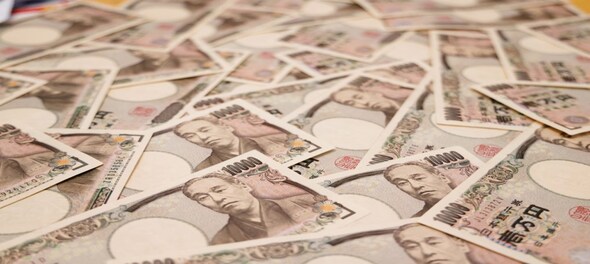
The Australian dollar ticked higher on Tuesday ahead of an expected half-point increase in the Reserve Bank's policy rate, while the yen slid against the greenback amid a rise in US Treasury yields.
The Aussie and New Zealand dollars were also supported by signs that the United States might soon ease tariffs on key trading partner China.
Australia's currency climbed 0.29 percent to $0.68, while New Zealand's kiwi rose 0.21 percent to $0.62.
At the same time, the US dollar was up 0.35 percent at 136.16 yen, gaining support from a strong rebound in the 10-year Treasury yield, which jumped to 2.97 percent in Tokyo on Tuesday from the lowest since May at 2.79 percent on Friday.
Also read: Nikkei cautious as Wall Street futures slip
There was no trading in Treasuries on Monday, with US markets closed for the Fourth of July holiday, which also resulted in thin currency-market trading.
Economists polled by Reuters expect the Reserve Bank of Australia on Tuesday will deliver another half-percentage-point rise in interest rates as it fights to tame inflation at two-decade highs, matching the increase it delivered last month in a hawkish surprise.
The Aussie was also supported by a Wall Street Journal report that the White House would announce an easing of some Chinese tariffs later this week in an attempt to dampen elevated inflation, analysts said.
The dollar index, which measures the buck against six major peers, including the yen, was about flat at 105.13 after finishing Monday largely unchanged. On Friday, it rose as high as 105.64, threatening the two-decade peak of 105.79 reached in mid-June.
The euro, which is the most heavily weighted in the index, rose 0.13 percent to $1.04 after ending Monday about flat. Over the past two months, it has been bumping against a floor around $1.03, levels not seen since the beginning of 2017.
The euro got support overnight from a bump in regional yields after Bundesbank chief Joachim Nagel said the very accommodative stance of the European Central Bank (ECB) would "swiftly be abandoned" and a restrictive policy stance might be needed to achieve the inflation target.
The ECB is gearing up to raise interest rates for the first time in a decade later this month. The policy outlook may not sustain the euro longer term though, National Australia Bank markets economist Tapas Strickland wrote in a note to clients.
"Europe remains stuck in the middle between the Russia-Ukraine crisis and a weakening global economy," he said. "Given Europe's dire predicament, it is hard to see an enduring euro rally, which may keep USD strength going for longer."
(Edited by : Sangam Singh)
First Published: Jul 5, 2022 8:54 AM IST
Check out our in-depth Market Coverage, Business News & get real-time Stock Market Updates on CNBC-TV18. Also, Watch our channels CNBC-TV18, CNBC Awaaz and CNBC Bajar Live on-the-go!


Kannauj Lok Sabha elections: Can ex-UP CM Akhilesh Yadav reclaim this erstwhile SP bastion?
May 12, 2024 11:32 PM
Khunti Lok Sabha Elections 2024: Arjun Munda and Kali Charan to lock horns in this clash of tribal leaders
May 12, 2024 8:59 PM
Malkajgiri Lok Sabha election: A three-way contest among turncoats
May 12, 2024 8:45 PM

